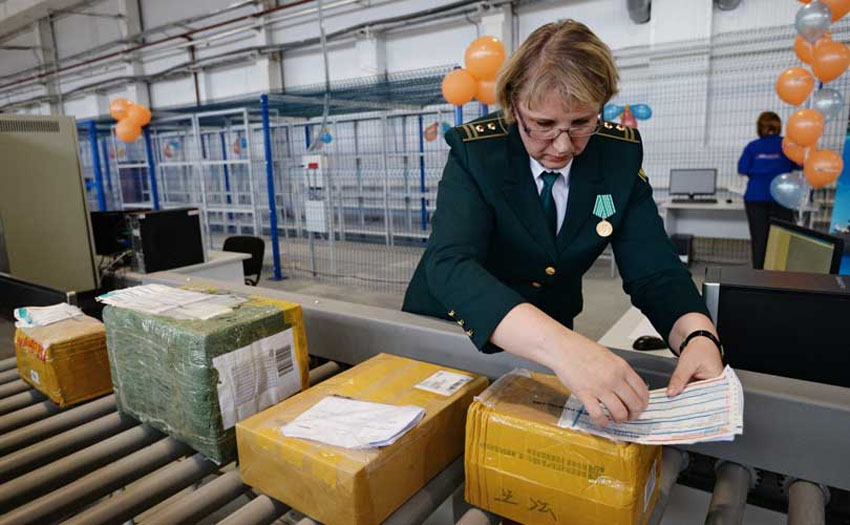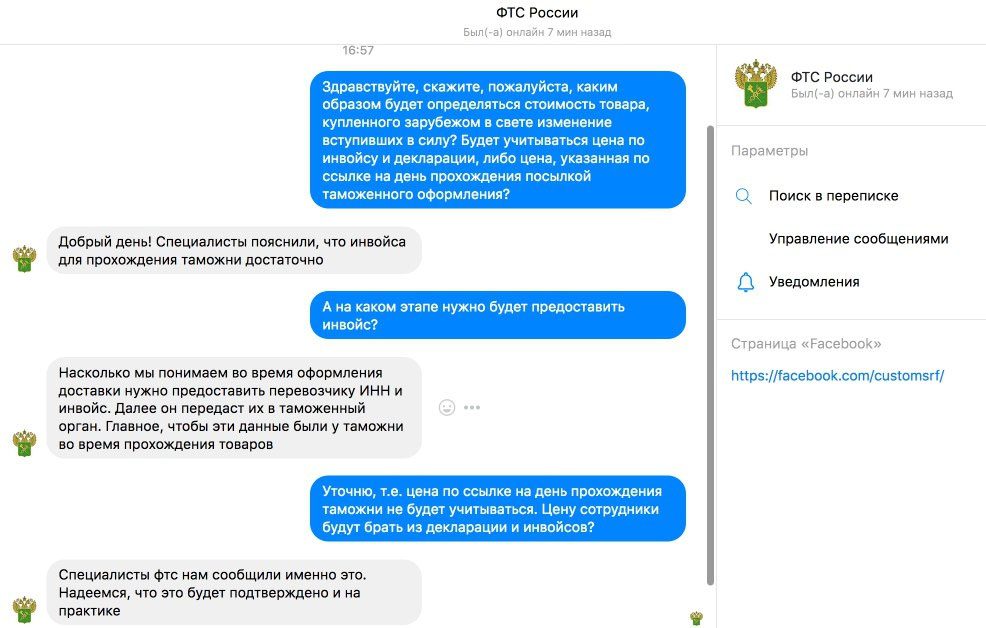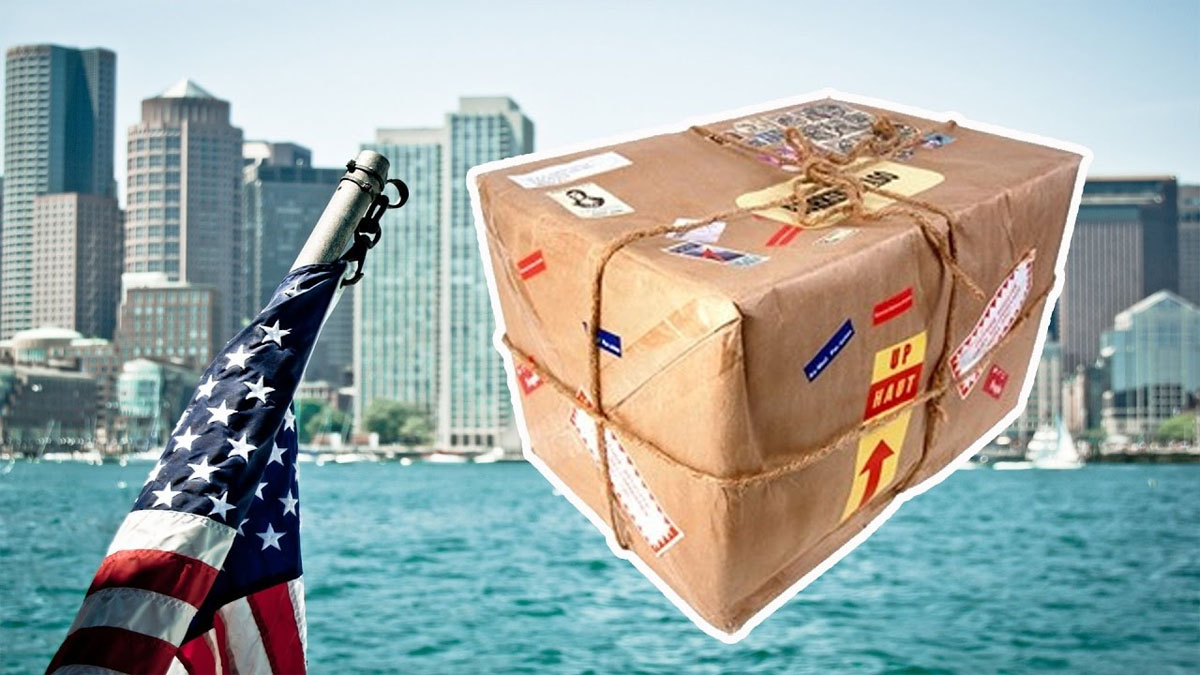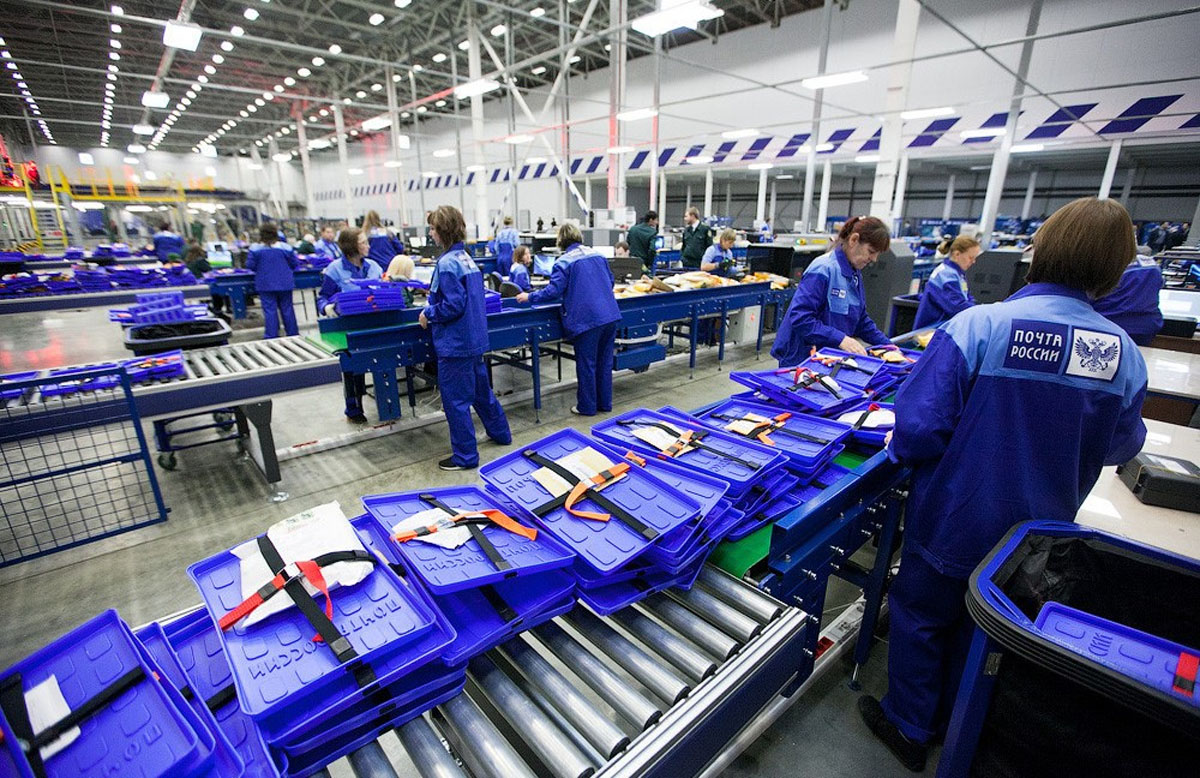Russian Customs has changed the rules for processing parcels from foreign online stores. What does it mean

As you have probably heard, starting today, Russia's customs is changing the requirements for accepting packages from foreign online stores. We here in Pochtoy observe a slight panic, so, probably, we need to explain what happened and what changes it threatens for users (spoiler: not everything is so scary). We gave interviews about this to newspapers and the 360 ° channel. And in the GT write forgot. Correct and clarify the situation.
What happened
On December 7, a new order of the Federal Customs Service regarding purchases imported from abroad came into force (Federal Customs Service No. 1861 of 11/24/2017). Now, new data is required from users - in particular, the TIN and confirmation of the price of the goods - to help Customs track down whether they bring in “too much” and not to start demanding payment of the duty from them. This is an “experiment on introducing into the Unified Automated Information System of the customs authorities (EAISTO) the function of checking goods purchased by individuals in foreign online stores and delivered by freight forwarding companies and courier services”.
Everything is as usual: the government does not like overseas online purchases: customers who buy goods there cheaply do not pay any additional taxes to the budget. Since 2014, there is an active tightening of the rules and the introduction of fees is constantly discussed. But so far, purchases abroad continue to grow. Following the results of 2017, the share of foreign e-commerce in Russia will be about 40%. This is 420 billion rubles past the Russian treasury. Alexey Fyodorov, head of the AKIT association, which united the twenty largest Russian online stores to lobby for their interests, states that “When you buy on Aliexpress, you essentially commit theft.”

The duty-free threshold for purchases in foreign online stores now amounts to € 1 thousand or 31 kg per person per month. Now it will be easier for customs to track whether this limit is not exceeded. The FCS also states that the new requirements will reduce the “risks of importing goods to nominees.” The new order will be tested throughout the country from December 7, 2017 to July 2018. Passport data of users, TIN, as well as information about the cost and weight of the goods they buy in euros and rubles will be stored in EAISTO.
The experiment does not involve only international shipments sent via the Post of Russia.
What has changed for you
Not so much. If you took something in foreign online stores, your passport data must have been demanded of you. And now, in addition to them, customers will need to specify their TIN and provide links or screenshots of the ordered goods. However, the laws on purchasing in online stores vary with enviable regularity, and the quality of their execution may depend on the specific customs officer. For example, with links and screenshots, they now understand that they got excited:

As you can see, at the FCS, while they themselves are not very sure what the new rules mean. But applications TIN and links to the goods so far enough. Attach invoices, screenshots and other proof of purchase from us is not required. In the office of Pochtoy.com there was always a field for adding a link, and now just another one appeared next to it - for the TIN. Most other brokers have the same situation. If you need anything else later, the support service will contact you.
During customs clearance, the cost of goods will be recorded in accordance with the declaration you have drawn up. The confirmation of the correctness of filling out the declaration on your part is an invoice - a letter with confirmation of payment for the order, which the store sends you by e-mail.

If the link to the product “burned out” (gives 404, for example), its alternative is a screenshot of the order confirmation page from your personal account in the online store. The screenshot should be made so that the name, photo, price and quantity of the purchased goods are clearly visible. And then - download it to the cloud or file sharing.
Even if the link does not burn, it is useful to save screenshots and invoices for another situation. Many of our customers take a product at a discount. And since the data from the links will be processed by EAISTO at the moment when the parcel passes through customs, it is likely that the price there will be higher. If you literally barely invested in a limit of € 1 thousand, and the price increase "exceeded" you, you may be asked to pay a fee - 30% of the amount exceeding the limit. If the iPhone X, which cost a secure € 800 anywhere on eBay, turns into € 1200 via the same link, you will have to pay € 60. A similar story - if the page on the link just disappeared, and now the customs have nothing to check the price.
In general, notarized screenshots over which the Internet once got ugly is no longer a myth, but a reality.
What has changed for us
Also not much. Links, and so we advised to put, to avoid misunderstandings. Now added a field for TIN. In existing orders going through FastBox, Express Mail and Express Light Mail, we urgently add the TIN from those users who have made it to your account or have contacted our operators. Those who are not ready to provide their TIN number are invited to switch to delivery by EMS, USPS Priority or Econom Priority, which work through the Russian Post.

Technical support in the field of online shopping and so is not easy. And for the next few days we are working in emergency mode. While the package does not fulfill the new requirements, it will not pass through customs, and many users need to be informed about this personally. Plus - we are preparing for a potential time delay, while the FCS deals with its new system. Although the customs service itself says that this will not happen.
And so - do not worry, there were laws and worse. We are waiting for a real blow in July 2018, when the limit on purchases from abroad will be cut to € 20 .
All Articles